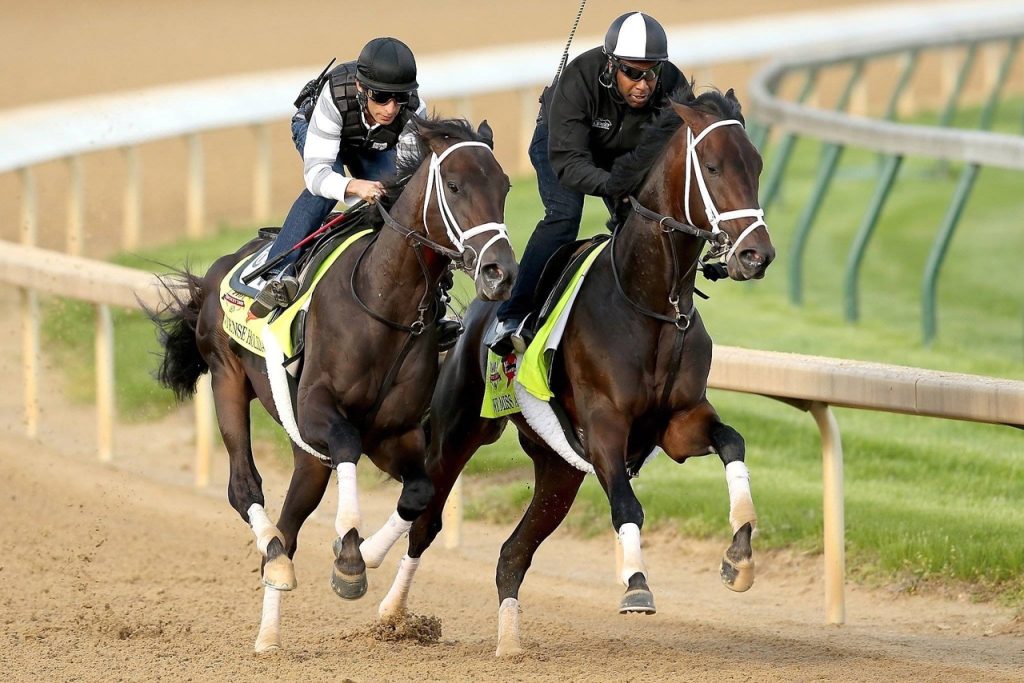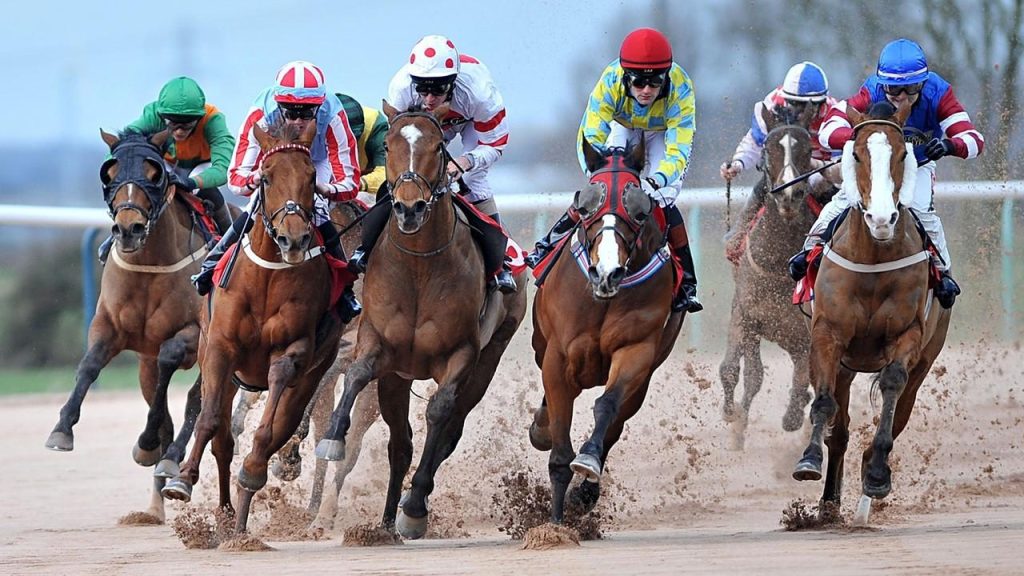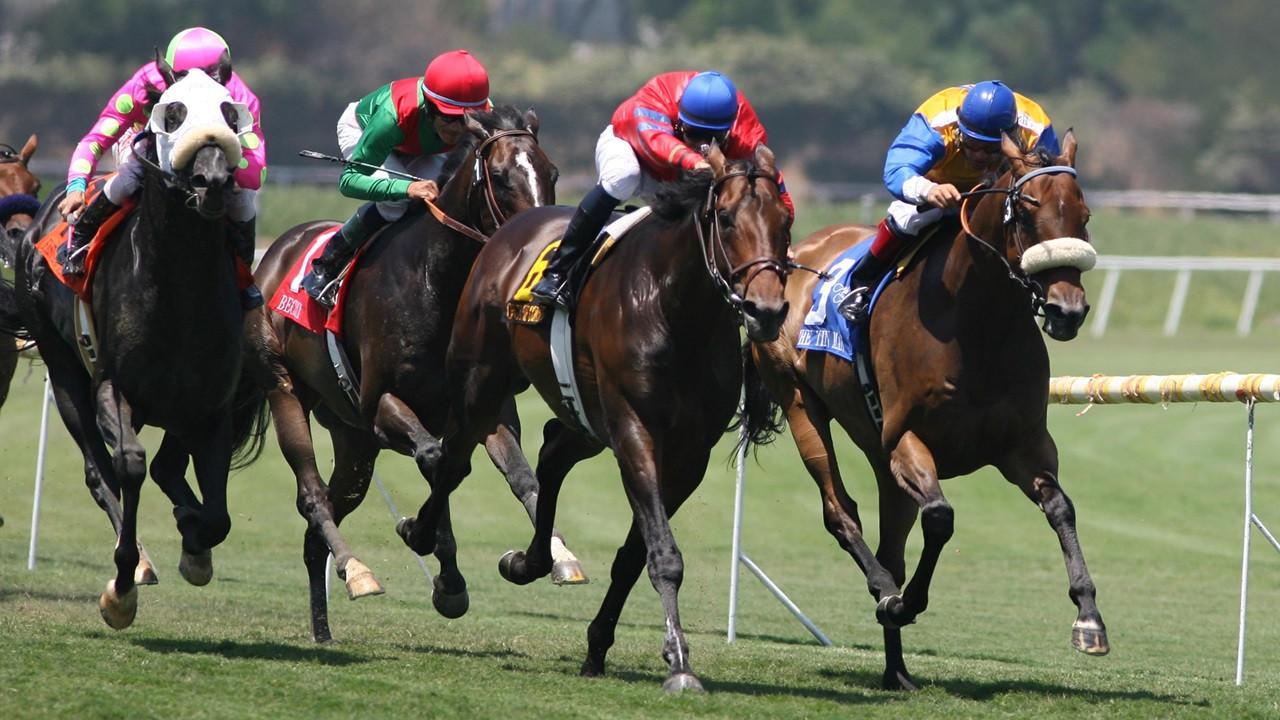Introduction
Historical Horse Racing (HHR) is an innovative and evolving form of pari-mutuel wagering that uses replays of past horse races, where the identity of the horses, jockeys, and trainers are concealed, to allow for wagering in a manner similar to live horse racing. It has been designed to sustain the horse racing industry while offering a unique alternative to traditional casino-style gaming.
Horse racing is a sport steeped in tradition and history, with roots going back centuries. Over time, as the sport has faced challenges due to competition from other forms of gambling, technological innovations like HHR have emerged to maintain its relevance and economic viability. This article explores what historical horse racing is, how it functions, its development, and its impact on the horse racing industry.

The Concept Of Historical Horse Racing
Historical Horse Racing (HHR), also referred to as “Instant Racing,” blends elements of traditional horse racing with modern technology to offer a new form of gambling. Players bet on races that have already occurred, with the outcomes determined by real-life results from previously run races. HHR terminals resemble slot machines, giving the feel of a casino, but instead of random number generation as seen in typical slot machines, HHR is based on real race results, making it a hybrid form of gambling that is still tied to the sport of horse racing.
The idea behind HHR emerged as a way to revitalize and financially support the horse racing industry, which has seen declining revenues due to the rise of casino gaming and other forms of entertainment. With fewer people attending live races or betting on horse races, historical horse racing provides an alternative source of revenue for racetracks. Importantly, it keeps the core of the industry—pari-mutuel betting—intact.
How Does Historical Horse Racing Work?
The mechanics of HHR are relatively straightforward but differ significantly from conventional gambling forms. Players place bets on races that have already been run, and they are presented with limited information before placing their bets. The details of the race, such as the date, location, and participants, are not revealed to the bettor, which prevents players from simply looking up the results. Instead, players are given general information, such as past performance statistics of horses, jockeys, and trainers, to make an informed decision. This layer of analysis allows HHR to maintain a skill-based element while still offering an element of chance, which is integral to the thrill of gambling.
Once the wager is placed, the terminal shows a short video clip of the race that took place, often just the final few seconds. The outcome of the race, which is determined by real past results, dictates the payout. Like traditional horse racing, the betting is based on the pari-mutuel system, where the odds and payouts are determined by the amount wagered on each horse, rather than a fixed-odds system typical of slot machines.
The Development And Evolution Of Historical Horse Racing
The concept of HHR was first developed in the late 1990s by Oaklawn Racing Casino Resort in Arkansas, in collaboration with gaming technology company Exacta Systems. The aim was to find a way to increase revenue for horse racing tracks without moving away from the pari-mutuel wagering system that supports the industry. The terminals were initially met with some resistance and skepticism, as they resembled slot machines too closely for the comfort of traditionalists within the industry.
However, the success of HHR in Arkansas led to its spread to other states with legal horse racing and pari-mutuel wagering. Kentucky, a state known for its deep-rooted horse racing culture, became a significant adopter of HHR, where it was viewed as a lifeline for the state’s racetracks and breeding industry. HHR terminals quickly gained popularity, and by 2020, Kentucky had over 3,000 HHR machines operating at various racetracks and off-track betting facilities.
States such as Wyoming, Virginia, and Oregon also embraced HHR as a way to sustain their local horse racing industries. The spread of HHR continues as states with struggling horse racing industries view it as a means to generate additional revenue without having to rely on casino gambling or expanding their gaming laws to allow for other types of betting.
The Legal Landscape Of Historical Horse Racing
The legality of historical horse racing has been a contentious issue in several states, leading to numerous legal challenges and court cases. Opponents argue that the machines are essentially slot machines in disguise and should be regulated as such, which would require changes to state gaming laws. Proponents, however, maintain that since HHR is based on pari-mutuel betting and not random number generation, it falls under the legal framework of horse racing rather than casino-style gaming.
In Kentucky, the legal battle over HHR reached the state’s Supreme Court in 2020, when opponents of the machines argued that they violated the state’s constitution by allowing what amounted to slot machine gaming without the approval of voters. The court ruled that certain HHR systems did not meet the legal definition of pari-mutuel wagering, which temporarily halted the operation of some HHR machines. However, the Kentucky General Assembly quickly passed legislation in 2021 to ensure that HHR met the state’s definition of pari-mutuel wagering, allowing the machines to continue operating.
Other states have faced similar legal hurdles. For instance, in Wyoming, HHR machines were initially banned after they were deemed too similar to slot machines. However, after the introduction of new regulations and technical adjustments to the machines, they were allowed to return under stricter oversight. These legal challenges highlight the ongoing debate about how to classify HHR and the balance states must strike between preserving traditional horse racing and allowing for modern forms of gambling.

Impact Of Historical Horse Racing On The Horse Racing Industry
The introduction of HHR has had a profound impact on the horse racing industry, particularly in states where live racing was struggling to survive. The revenue generated from HHR has provided a much-needed financial boost to racetracks, breeders, and horsemen, allowing them to continue offering competitive purses and maintaining high-quality racing events.
For example, in Kentucky, the revenue from HHR has been used to increase purses at live racing events, which in turn attracts higher-quality horses and more prominent jockeys. This has a positive ripple effect throughout the industry, from breeding farms to trainers and stable hands. Additionally, the money generated from HHR has been used to improve racetrack facilities, providing better experiences for fans attending live races.
The broader horse racing industry has also benefited from HHR, as the increased revenue has allowed tracks to contribute more to the overall health of the sport. In some cases, HHR revenue has been used to fund health and retirement programs for jockeys and other industry workers, as well as initiatives to improve the safety and welfare of racehorses.
Despite its positive impact, HHR has also sparked concerns within the horse racing industry. Some critics argue that HHR draws attention and resources away from live racing, potentially reducing the number of people attending live events. They fear that if bettors become too reliant on HHR, it could lead to a decline in live racing attendance, which would ultimately hurt the sport in the long run. Proponents, however, argue that HHR is complementary to live racing and helps generate interest in the sport, especially among casual bettors who may not otherwise engage with horse racing.
Economic Impact And Job Creation
Historical Horse Racing has not only helped sustain the horse racing industry but has also contributed to broader economic development in areas where it is implemented. The operation of HHR terminals creates jobs, from those working in the facilities where the machines are located to those involved in the maintenance and oversight of the machines themselves. In addition, the increased revenue from HHR allows racetracks to hire more staff and invest in facility improvements, which further boosts local economies.
The breeding industry has also reaped the rewards of HHR, especially in states like Kentucky, where the demand for high-quality horses has grown due to the increased prize money offered at live races. This has led to a surge in breeding activity, which in turn supports a wide range of jobs related to the care and training of racehorses.
The Future Of Historical Horse Racing
As more states explore the potential of HHR, its future appears promising, though not without challenges. One of the key factors that will determine the future of HHR is the regulatory landscape. The ongoing legal challenges surrounding the classification of HHR machines suggest that the industry will need to continue refining its offerings to ensure compliance with state laws. Additionally, as the debate over the role of gambling in society continues, HHR will likely face scrutiny from those who oppose expanded gaming.
However, the growing popularity of HHR indicates that there is a demand for this type of betting experience. For horse racing enthusiasts, HHR provides an opportunity to engage with the sport outside of the traditional racing calendar, while casual gamblers enjoy the convenience and entertainment value of the machines. As technology continues to evolve, it is likely that HHR terminals will become more sophisticated, offering bettors even more detailed information and enhanced wagering options.

Conclusion
Historical Horse Racing represents a significant innovation in the world of gambling and horse racing. By allowing players to bet on races that have already taken place, HHR preserves the pari-mutuel betting system while offering a modern alternative to casino-style gaming. Its success in states like Kentucky and Arkansas has demonstrated its potential to revitalize struggling racetracks and provide a financial lifeline to the broader horse racing industry.
While legal challenges remain, the overall impact of HHR has been overwhelmingly positive, providing increased revenue for racetracks, supporting the breeding industry, and generating jobs. As more states consider adopting HHR, it is poised to play an increasingly important role in the future of horse racing, ensuring that this historic sport continues to thrive in the modern era.

